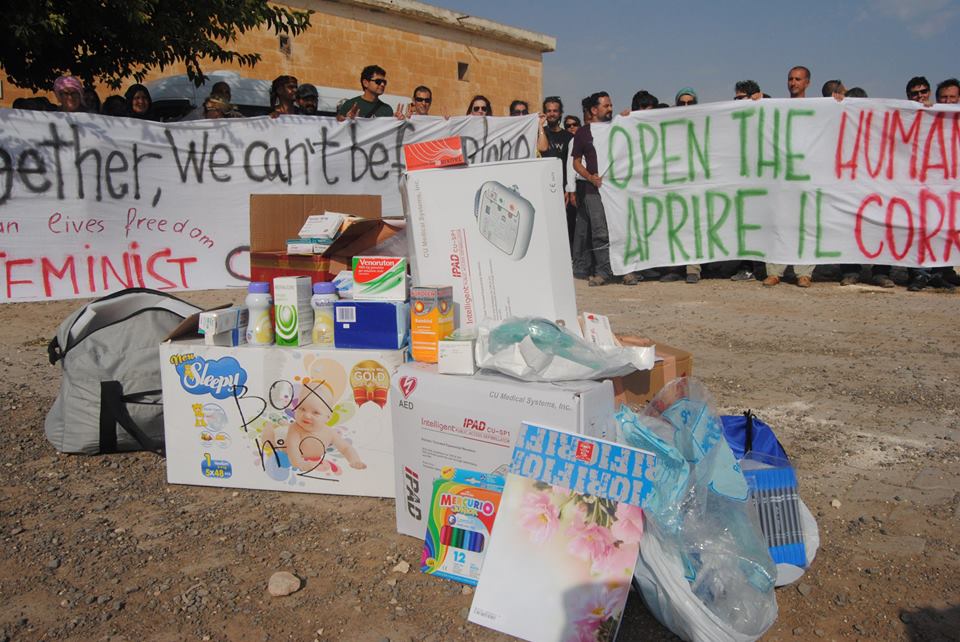The Turkish government announced in the country’s Official Gazette on Monday that it has imposed asset freezes on 62 individuals and 20 charitable foundations and associations, with accusations that they have been funding the Kurdistan Workers’ Party (PKK). The decision, which covers almost exclusively humanitarian organisations, coincides with intensified Turkish military operations in Kurdish-led northern Syria and the Kurdistan Region of Iraq (KRI), raising concerns regarding its effects on civilian infrastructure and humanitarian initiatives.
Turkey started escalating military operations these regions in October this year, declaring civilian infrastructure to be “legitimate targets”. The escalation began after an attack on the Turkish police headquarters in Ankara on 1 October, for which the PKK claimed responsibility. In response, Turkey launched extensive airstrikes targeting civilian infrastructure, including hospitals, schools and utilities, in northern Syria and the KRI, severely affecting the lives of millions.
Turkish forces conducted over 580 air and ground attacks in northern Syria between 5-9 October, impacting about five million people. The Autonomous Administration of North and East Syria (AANES) reported 44 deaths, including two children, and 55 injuries. The attacks also destroyed critical facilities, including 11 power plants, two clinics, 48 educational institutions and a security training centre. Significant damage was inflicted on key oil sites, healthcare facilities and water stations, severely impacting civilian life and infrastructure.
The relief organisation Medico International has reported that around 80% of civilian infrastructure in the Kurdish-led region of northern Syria, known as Rojava (West Kurdistan), has been damaged, leaving millions without reliable access to power and water. The airstrikes also destroyed a covid hospital in al-Malikiyah (Dêrik) – the only covid specific facility in the region – and disrupted essential medical supply chains.
The Kurdistan Red Crescent Society (Heyva Sor a Kurdistanê) has been playing a pivotal role, delivering critical humanitarian aid to those in dire need amid the turmoil. It has initiated an urgent campaign to provide essential aid to civilians in the region in response to the escalating humanitarian crisis caused by Turkey’s military operations. It also expended approximately 1.8 million euros in earthquake relief following the February 2023 earthquakes, distributing essentials such as tents, stoves, blankets, food and hygiene products in affected areas of Turkey and Syria.
The organisations whose assets have been frozen operate across various countries, including Austria, Sweden, Switzerland, Norway, Belgium, UK, Denmark, France, Japan, Italy, Iraq, Syria, Germany and Australia. The list predominantly includes humanitarian organisations such as Heyva Sor, known for aiding civilians in disaster-affected areas.

The organisations listed in the Official Gazette, whose assets have been frozen are:
ROJ Sor a Kurdistanê, Austria
ASBL Croissant Rouge du Kurdistane, Belgium
Kurdish Red Moon, UK
Støtteforeningen Mesopotamiens Sol, Denmark
Association Humanitaire Franco Kurde, France
Insamlingsstiftelsen Kurdiska Röda Solen, Sweden
Croissant Rouge du Kurdistan Suisse, Switzerland
Kurdistan Red Moon (Heyva Sor a Kurdistanê), Japan
Japan Kurdish Cultural Association, Japan
Mezzaluna Rossa Kurdistan Italia ETS, Italy
Staffetta Sanitaria Rojava, Italy
Kurdiske Røde Halvmåne Norge, Norway
Kurdish Red Crescent (Heyva Sor a Kurd), Iraq, Syria
Kurdistan Islamic Community (Civaka Islamiya Kurdistan), Germany
New South Wales Democratic Kurdish Community Center, Australia
Edition Mezopotamya, Germany
Adelaide Kurdish Youth Society, Australia
Royem Donar GmbH, Germany
Bi Hevre, Switzerland
Ici Ailleurs, Switzerland










